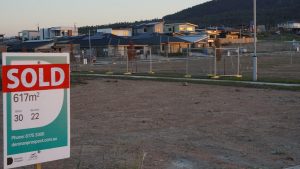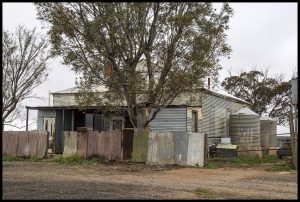Perhaps you’ve been a smart renter for a number of years and have managed to save a sizeable deposit for a home. We’ve never bought a home so we picked up some strategies from others who have succeeded in keeping their home ownership costs low.
Do your homework
- Your house will probably be the most expensive thing you ever buy.
- It may seem that developers, banks and real estate agents are here to make home ownership easy for you but it’s important to remember that they are working for sellers and shareholders, not for you.
- Because of this, do your homework and have a healthy level of scepticism.
- If you’re going to buy, plan to live in your home for at least 5-10 years as the cost of buying and selling (stamp duty, agent’s fees, etc.) can really add up.
- Consider if it is realistic to buy in the area you want to live in, whether it would be better renting there or whether you should consider moving to a different area.
What should I spend?
- Think value and not price. What is the value of the house to you? How much will you spend on ownership costs minus its possible resale value versus renting it for that period of time?
- Australian housing is overpriced due to government and industry policies that favour investors over home buyers and owners.
- Though no one can predict what will happen in the future, be mentally prepared for the situation where your home may lose 25-50% in value to see if you’re comfortable with what you’re planning to spend [1].
- With a home loan, you can expect to spend 1.5 to 3 times as much on buying your home depending on how long the loan goes for and how interest rates behave in that time.
- Because of this, every $1000 that you avoid spending on buying a home now is actually $1500-$3000 you don’t have to pay back later.
- As a smart renter, you’ll probably be comfortable living in a smaller than average home with basic features so you should be able to spend less.

How much should I borrow?
- Be realistic about what you can afford and factor in for what happens if there is an unexpected job loss or crisis in your household.
- The banks may be happy to lend you a lot of money and let you take 30 years to pay it back but this doesn’t mean it’s a good idea. 30 years is a long way into the future and you don’t know what will happen between now and then.
- At the time of writing, interest rates are very low (around 3-5% for a home loan). Don’t get too comfortable and borrow a lot; 30 years ago interest rates hit 17%. Things can change.
- Aim to pay the loan back ahead of time, e.g. 10-15 years instead of 30. That way, you’ll have a buffer if you hit hard times for a while and can’t make the repayments.
- Avoid redraw facilities; they’re a great way to keep a home loan going for a long time and to make the bank rich at your expense. Aim to pay for anything outside of a home in cash instead.
- If you can only get an interest only loan or can’t save 20% or more for a deposit, rethink your need to buy a home. Betting on a future income rise is risky business.
Building a new home
- Ask for a detailed cost breakdown from the builder to see where your money is going and what exactly will be used in your home.
- Sometimes, there are unnecessary costs (see the next point), there may be jobs that you can easily do yourself or their might be an opportunity to use better quality materials or appliances at a small upfront cost that saves you a lot of money down the track.
- As an example, a buyer directed their building company to build a permanent fence immediately instead of hiring temporary fencing which saved him thousands of dollars.
- Construction standards in parts of Australia, particularly in high rise apartments have not fared well recently with some homeowners facing financial ruin. Again, do your homework [2].

Buying an existing home
- See the RetroSuburbia website for an extensive checklist on what to look for in an existing property if you are looking to be more self and community sufficient.
- As with the point above, do a thorough inspection of the house or get a professional. It’s your money and an inspection should prevent any nasty surprises down the track.
- Avoid the trap of renovating; it’s expensive, stressful, time consuming and can turn your home into a building site for months or years. Aim for a home where you can do simple retrofits instead.
- In some situations, a buyer’s representative may help you to navigate the pitfalls of buying a home, especially if there’s an auction involved but you’ve got to decide if it’s worth the cost [3].

If now is not the time, don’t worry
- Perhaps you just can’t save enough for a deposit, it feels like housing in your area is way overpriced or you’re not sure right now where you want to live in the future.
- In this case, be comfortable with renting and use the tools on Smart Renting to save like you’re on a mortgage (or do even better than that).
- One day, those savings could really come in handy if you decide to buy and could even buy a home outright if you save for long enough.
- Out of choice or circumstance, you may end up renting for life. This is fine, especially that around half of all homeowners in Australia are on a mortgage, meaning they are renting from the bank [3].
- You can have a good life renting and in our view, despite the stigma in some quarters, renters also pay for their housing, just on a weekly basis instead of with a mortgage.
This may be a lengthy article but buying a home is a big decision. This is certainly not conclusive advice but just some things to consider that could save you a lot of money down the track. If you’re going down this path, we wish you good luck.
Further Reading:
[1] This is about mental preparedness rather than making predictions. Real wages in Australia have not kept up with rising property prices in the past few decades and property investment has been driven by the idea that property will continue to go up.
At the time of writing, after two decades of strong growth, property prices across Australia have experienced significant declines and are expected to decline again for 2020 with the onset of the Coronavirus. How far they decline and when they’ll bounce back is anyone’s guess but it goes to show that if you buy, you need to be comfortable with the idea of potentially losing 25-50% of the house’s market value after you’ve bought it.
We’re not saying don’t buy, we’re saying look at the value of what the house has to you (e.g. location, food production, etc.) and don’t overstretch yourself financially so you can weather such a storm if it happens:
https://en.wikipedia.org/wiki/Australian_property_bubble
[2] https://www.theguardian.com/australia-news/2019/sep/13/low-clouds-over-high-rise-how-apartments-are-dragging-down-the-property-recovery [3] https://www.choice.com.au/money/property/buying/articles/property-buyers-agents[4] The latest data we could find was 2013/2014 though this appears to have been the trend in Australia since the early 2000s: